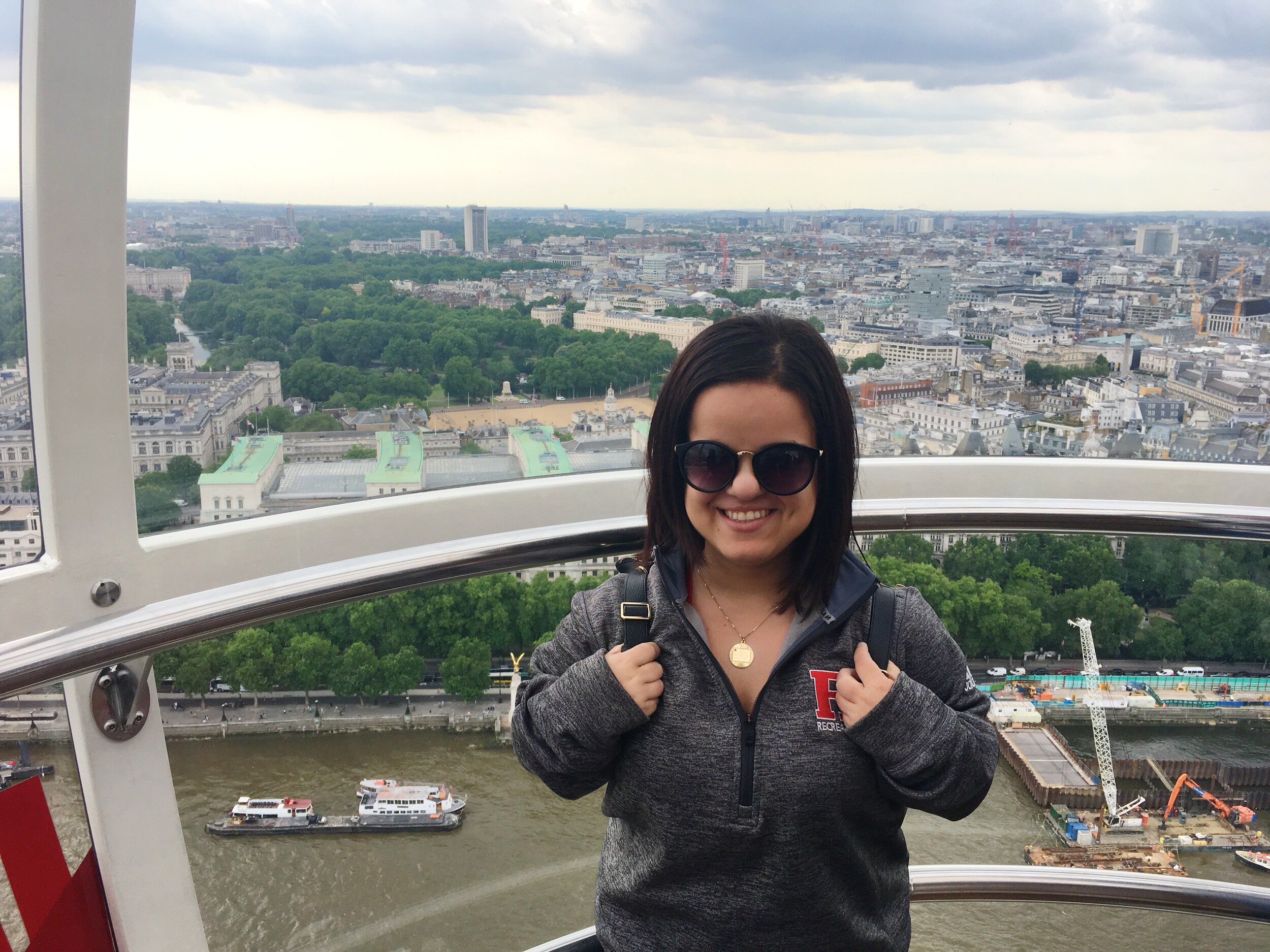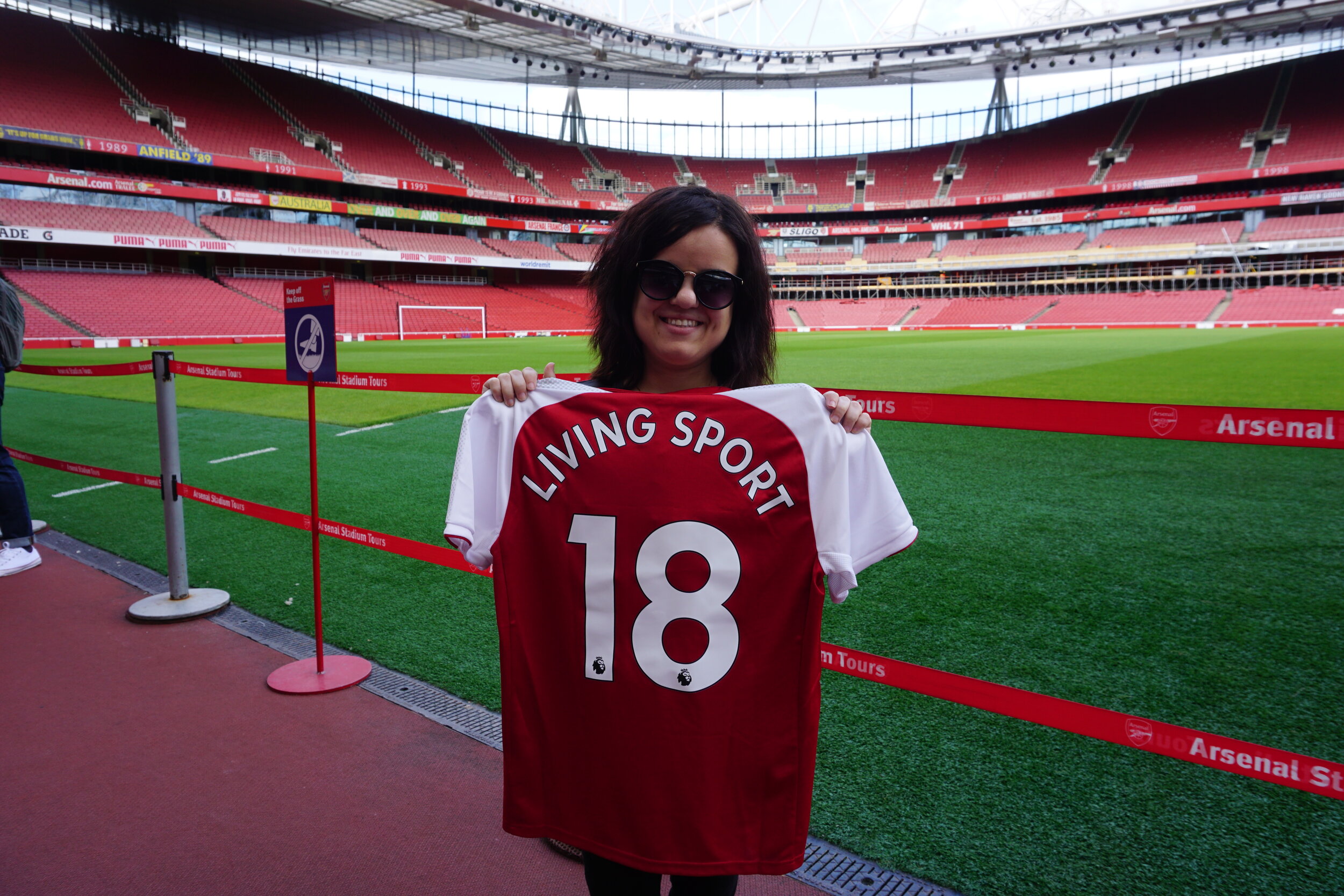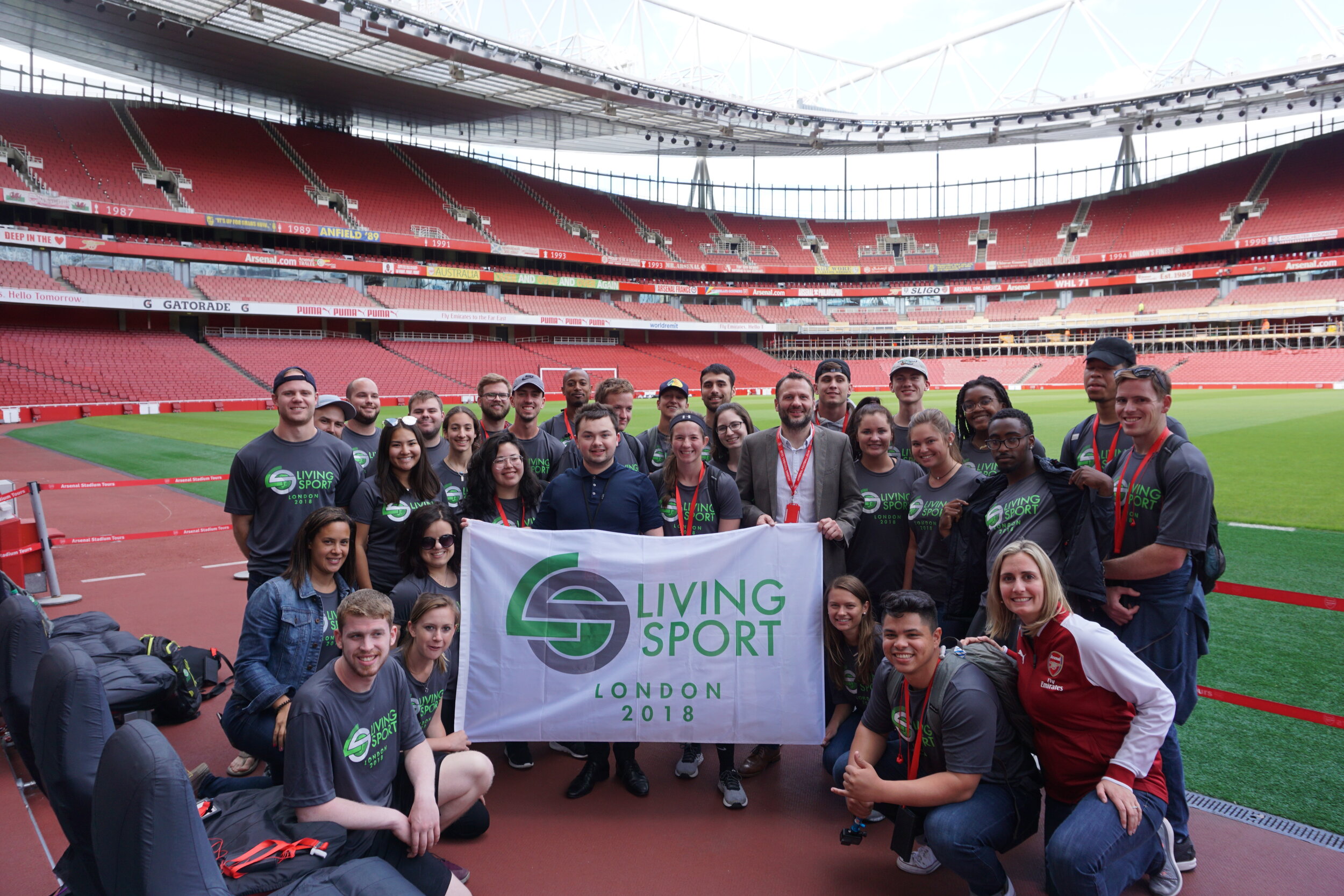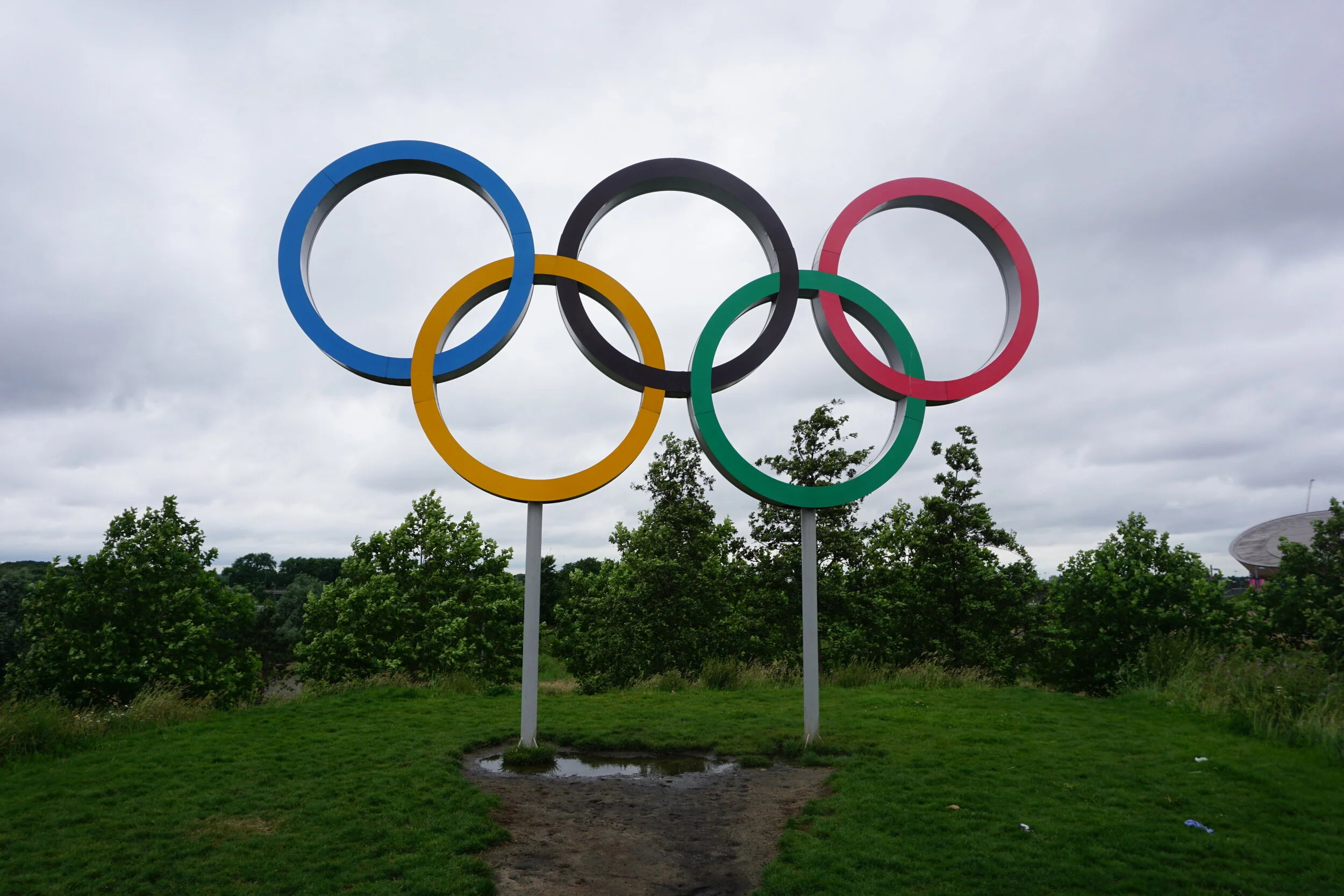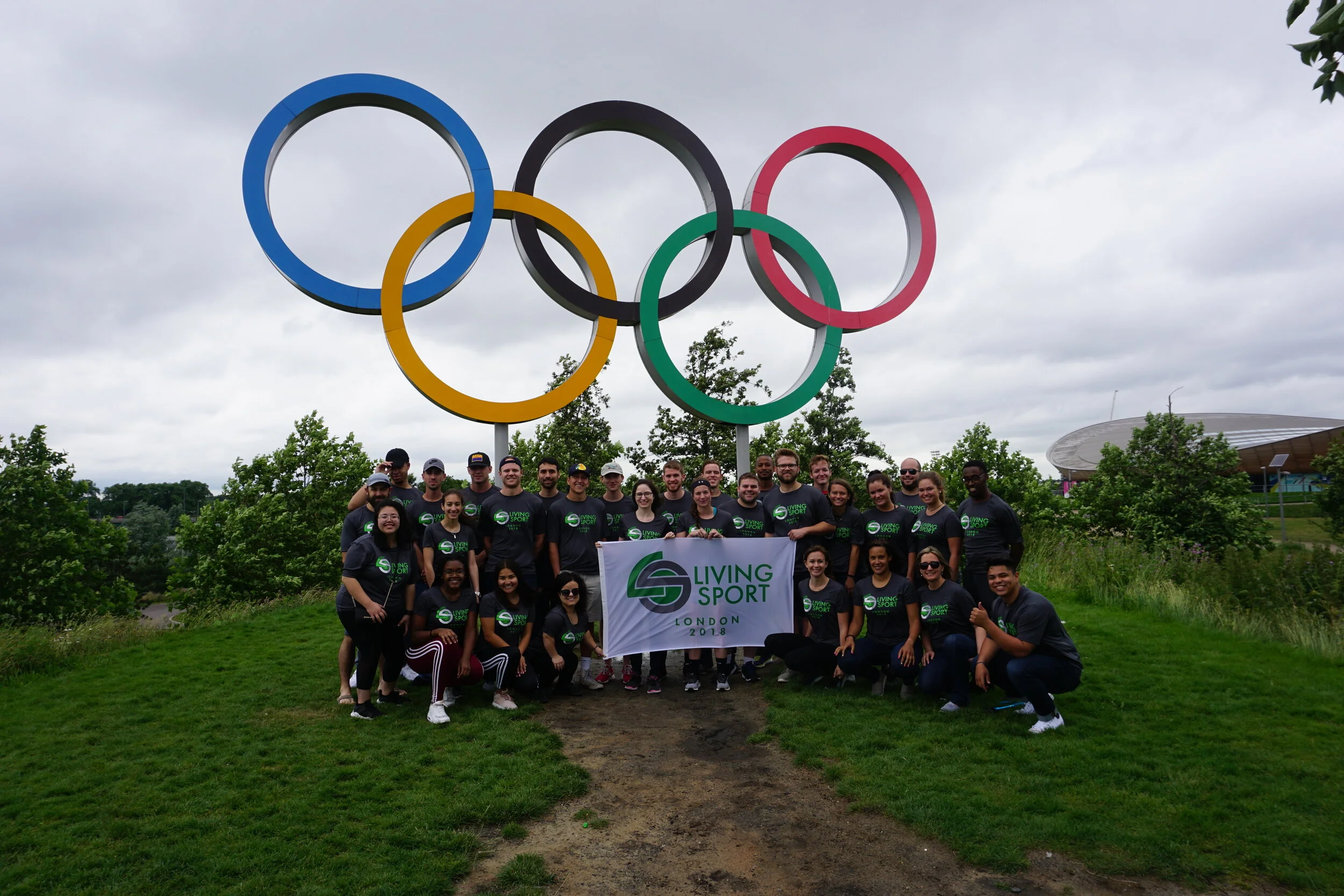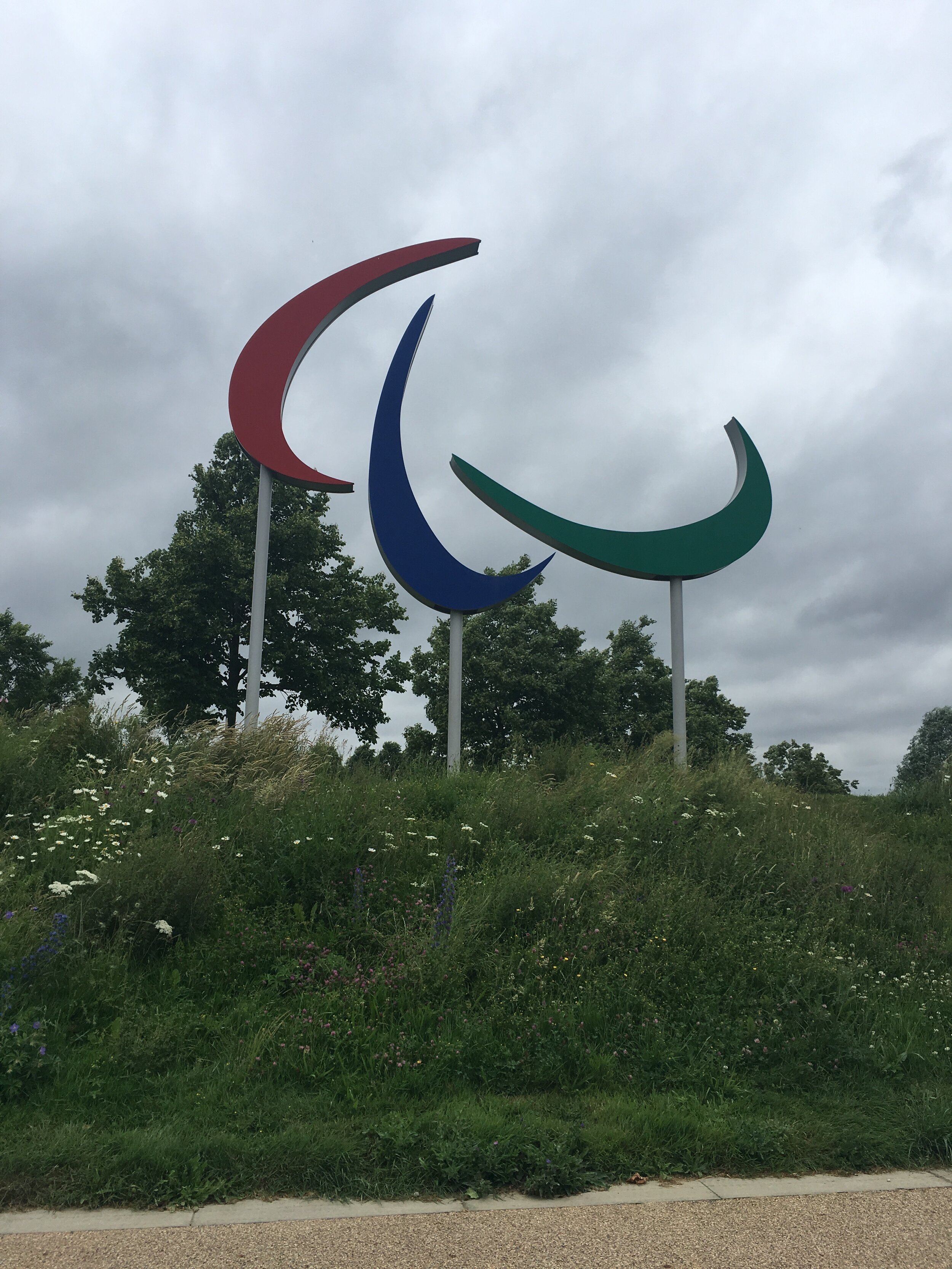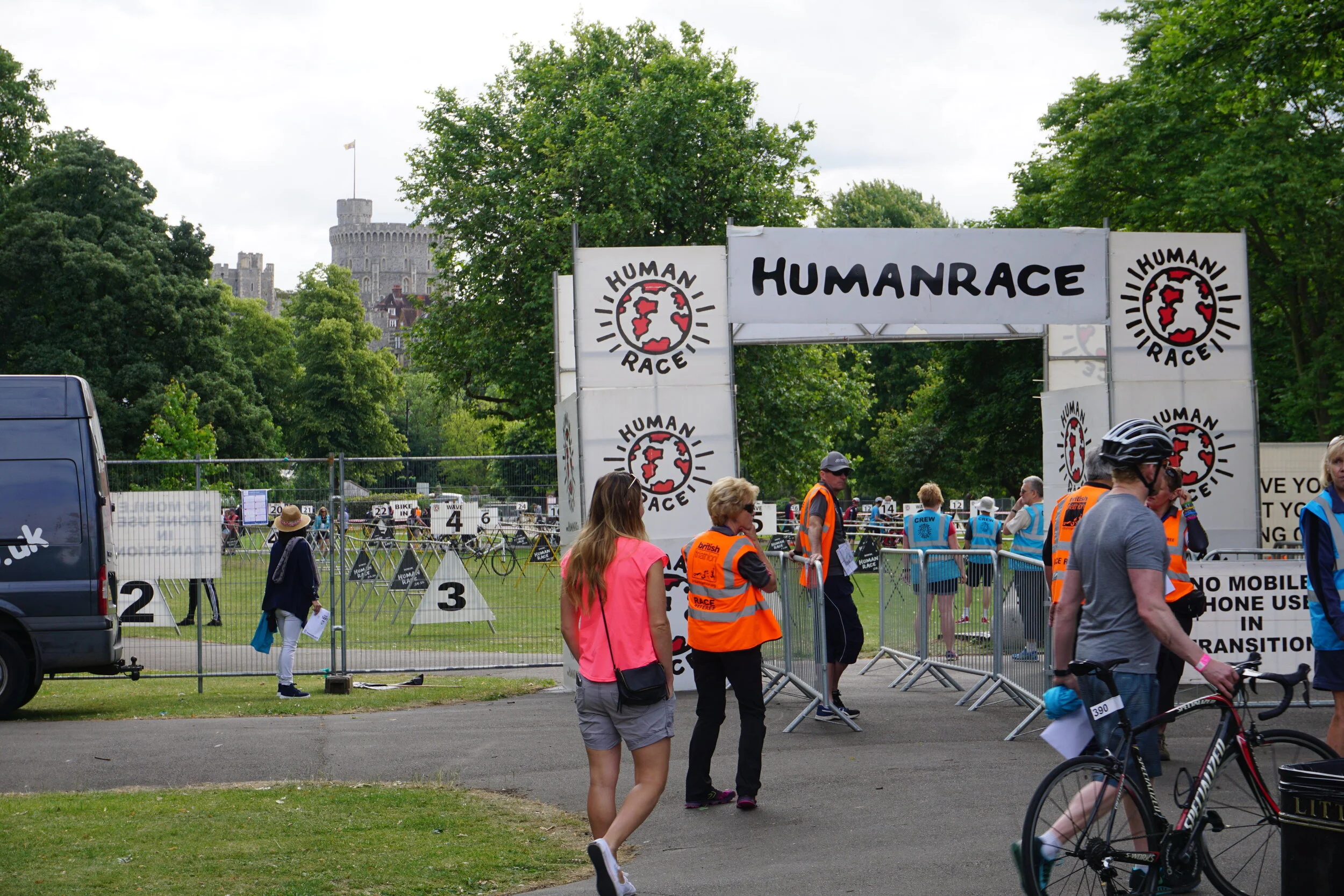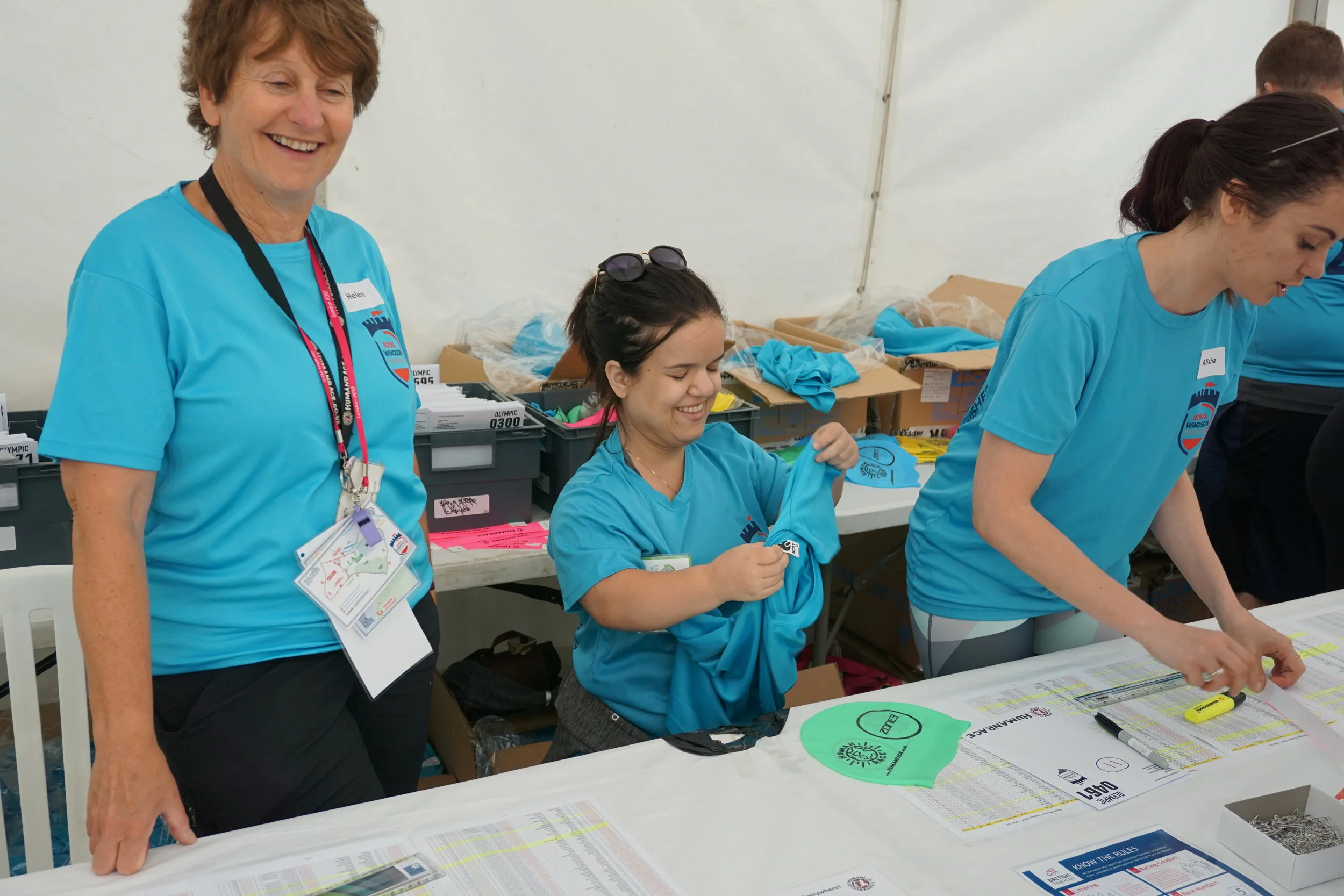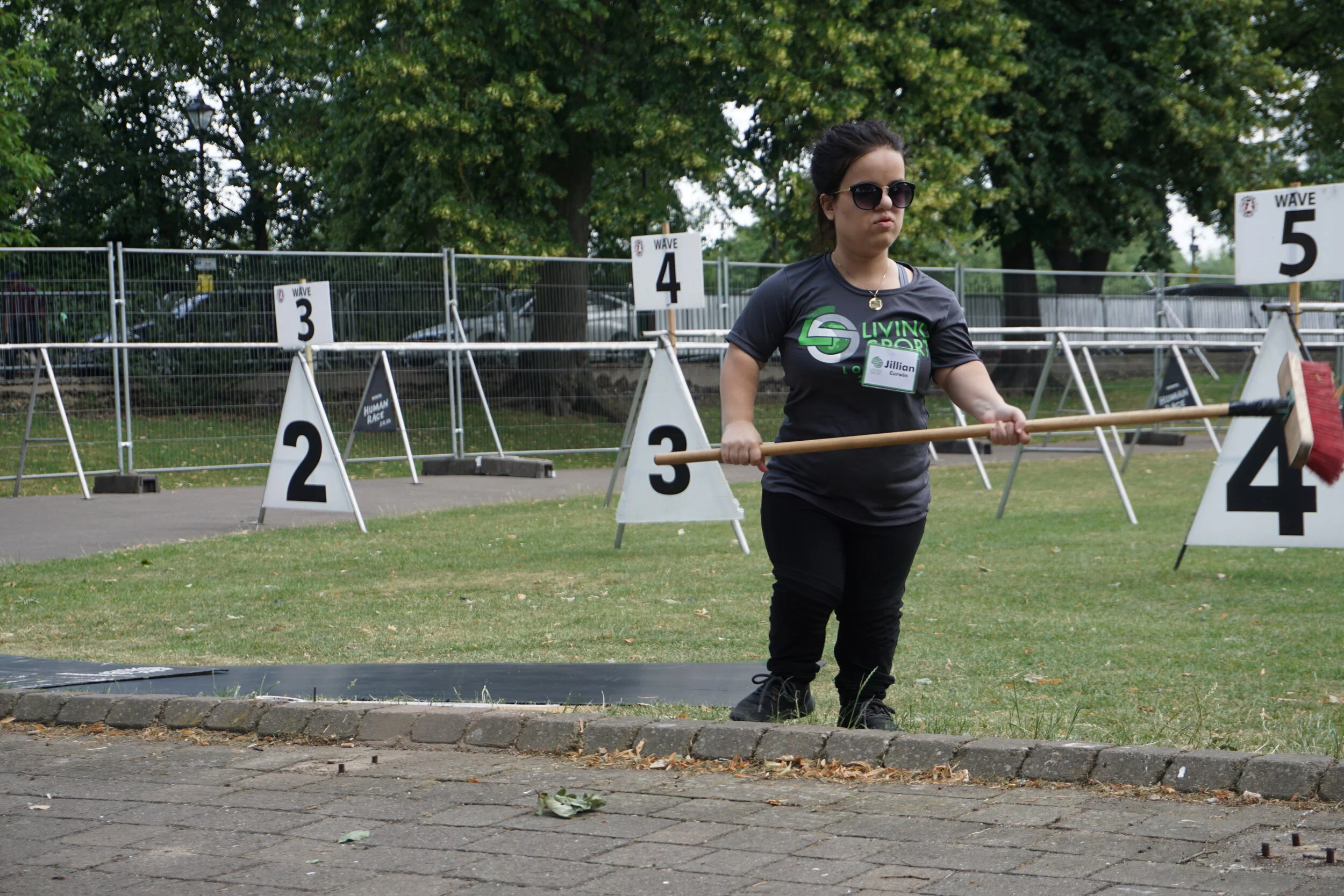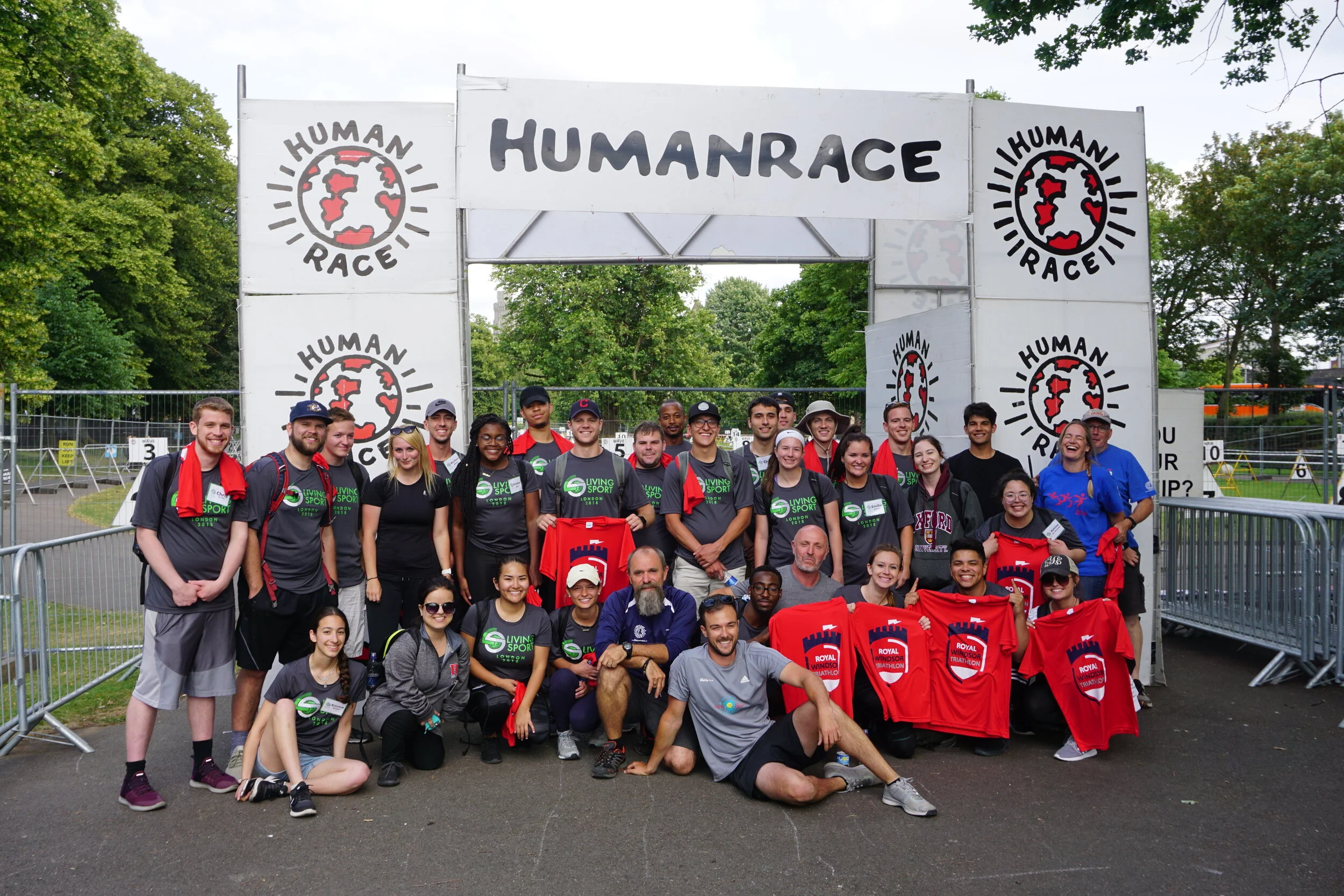The Trip Of A Lifetime
You get an email asking whether or not you want to seize a once in a lifetime opportunity? How do you respond?
February 2018, the day before my 23rd birthday to be exact, I received an email from a job board asking if I was interested in sports and wanted to travel to London to work an international sporting event. My initial response was this offer sounds too good to be true but I was intrigued. I learned that the program was run by an organization called Living Sport and that I would be traveling to London to participate in their international sport business program. If selected, I would travel to London for ten days, explore the city, tour notable sporting facilities, and work the upcoming Royal Windsor Triathlon organized by Human Race. I said to myself, “Why not?” and submitted an application. Two days later I had a phone interview with Alicia Marinelli, Living Sport’s founder and President. The more she told me about the program, the more excited I got and the more I wanted to be selected. I remember that towards the end of our call Alicia asked me if I had any questions and I told her that I’m a little person and explained what that meant. I asked her if she had any questions or concerns about that and, to my surprise, she did not. A couple weeks later I found out I was chosen. I remember feeling confused, shocked, thrilled, and trepidatious. This was the first thing I had done for me since my father passed away a few years before and I was determined to let nothing and no one hold me back.
Shortly after we came home I was asked to write a blog post about my experience. I wrote one and I will be the first to admit it was not my best work. I struggled with finding the words to express how those ten days in London made such an impact on my life. Now, as a new Living Sport program commences in Atlanta, I wanted to try it again.
Here we go.
My London experience with Living Sport exceeded any and all expectations. I fell in love with a city, made friends with people who are just as passionate about sports as I am, and worked an international sporting event on the grounds of Windsor Castle (No, the Queen was not there). When my mom asked me how my trip was, how I felt, the first word that came to mind was “normal”. Let me explain…
I’m a dwarf or little person. I have shorter arms and legs supporting an average-sized torso. At 4’00” I stand out in a crowd. “Normal” to me is doing my best to look straight ahead as people point, stare, and do their best to sneakily take pictures. “Normal” to me is having to struggle with my long-legged friends, not expecting them to wait for me and usually unaware that I’ve fallen behind. The last thing I expected during my ten days in London was to feel “normal”. I never had to ask anyone to slow down. I never felt left out. I never felt like I had to struggle to make myself seen or heard.
Before the Triathlon, we toured the Queen Elizabeth Olympic Park, one of the sites of the 2012 Olympic and Paralympic Games. It was exhilarating getting to walk in the footsteps of the world’s greatest athletes. I mean, we stood in the Aquatics Centre where Michael Phelps became the most decorated Olympian of all time. The most impactful moment was seeing the displays dedicated to the Paralympic Games. The Paralympics are often overshadowed by the Olympics so I was not expecting to see much space devoted to those games. Yet, there was an entire section devoted to the Paralympics. There were graphics explaining the history of the games and highlighting Paralympians who competed in London. There was even a section where they spelled out “Gold”, “Silver”, and “Bronze” in British Sign Language. As I absorbed the history of the Paralympics, I felt that as a person with a disability, there was a place for me in sports.
I must confess that the night before our first day of work I was terrified. I was convinced that the staff of Human Race would view my dwarfism as a hindrance towards the event’s success. Irrational? Most definitely. But, standing in the shadow of Windsor Castle as everyone around me was preparing for the arrival of 2000 athletes, I was scared that they thought I would just get in the way, that there would be no place for me on their team, that I would let them down. As it turned out, I worried for nothing.
I never had to ask anyone to wait for me. As we walked around Windsor on that first day handing out flyers, it was as if by instinct they knew that I was falling behind. Without being asked, they would always wait for me to catch up. As we set up the racks for the athletes to hang up their bikes no one ever said, “Jillian, I don’t think you can do this.” Rather, they handed me the tools and we all got to work. During the second day I worked in the registration tent and no one, staff member nor athlete, stared. On race day, athletes listened to me when I told them they could not bring their beers into the bike area after they completed their race. No one tried to walk over me, literally or figuratively. I was seen and heard. No one from Human Race, Living Sport, or the 2000+ athletes competing assumed I could not do what I was asked merely because I was a little person.
The most successful moment during the triathlon came from failure. As athletes were finishing the race a group of us were asked to move some metal barriers to form an exit queue. One by one I watched my fellow participants pick up their own barrier. Each barrier was certainly light enough for me to carry, but it was both longer and taller than I am. Believing I could do it, and too stubborn to ask for help, I picked one up and started walking. Despite the awkwardness of the barrier and needing to readjust my grip every few feet, I was determined. At one point I stopped because I heard laughter behind me. I set down the barrier, turned around, and saw one of the people in charge of Human Race walking towards me. He said, “We love the effort but you do not have to do this.” I immediately felt bad. I was asked to do something and I couldn’t for reasons beyond my control. As we walked across the field he asked why I didn’t request help and I told him, “I’m not the person who asks for help. I’m not going to say I can’t do something before I even try.” He responded by saying, “No, in situations like this we want you to ask for help. You are a valued member of the team. We’re not going to think less of you. Everyone, at some point, has to ask for help” I was taken aback. This was the first time that, while working in a professional sport setting, that I felt that my disability did not set me apart from my colleagues. Leaving Windsor Castle on that final day I felt empowered.
Three years later and I am still forever grateful to Living Sport for providing me with this once in a lifetime opportunity. To Alicia, Shane, Chasity and Ben, thank you for being the most insightful mentors. The knowledge I gained from you was invaluable. To my London 2018 team, thank you for treating me like “one of the guys.” I cannot express how much that means to me.
To anyone reading this, able-bodied or disabled, I would say stop doubting yourself and don’t be afraid to pursue what you love. If you get an email asking you to take a chance, seize an opportunity, and follow your dream, say yes.
LEARN MORE:
livingsport.com
Humanrace.co.uk
Follow Living sport on social media:
Facebook: @iamlivingsport
Twitter: @iamlivingsport
Instagram: @iamlivingsport
LinkedIN: Living Sport
YouTube: Living Sport
